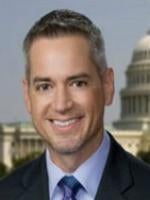While the recent economic crisis brought newly invigorated political support for SEC enforcement against financial services companies, a recent case shows that the courts will still prevent the SEC from overreaching in its efforts to punish those it views as wrongdoers. In Matter of the Securities and Exchange Commission v. Richard L. Goble, a May 29, 2012, decision by the United States Court of Appeals for the 11th Circuit reversed an SEC victory in a lawsuit claiming a violation of Rule 10b-5, on the ground that this anti-fraud provision did not reach the conduct that formed the basis for the enforcement action.
The SEC brought a civil enforcement action against Goble and others in 2008 alleging that Goble, the founder and owner of a brokerage firm called North American Clearing, Inc., had orchestrated a scheme to manipulate the amount of money that North American was required to set aside to protect the assets of its customers. North American was a securities and clearing brokerage firm for about 40 small brokerage firms and cleared trades for more than 10,000 customer accounts with a total value of more than $500 million. The case arose after North American’s revenues declined during 2007 and 2008 and a March 2008 audit by the Financial Industry Regulatory Authority (FINRA) revealed irregularities in North American’s calculation of its reserves.
After a bench trial, a U.S. district judge in the Middle District of Florida found that Goble had directed an employee to make a false entry in the company’s books, and thus found Goble liable for securities fraud in violation of Section 10(b) of the Securities and Exchange Act of 1934, 15 U.S.C. § 78j(b) and Rule 10b-5, 17 C.F.R. § 240.10b-5. The Court also found Goble liable for aiding and abetting violations of the Customer Protection Rule, 15 U.S.C. § 78o(c)(3) and 17 C.F.R. § 240.15c3-3, and the books and records requirements of the Exchange Act, 15 U.S.C. § 78q(a) and 17 C.F.R. § 240.17a 3.
The 11th Circuit’s reversal of the finding that Goble had violated Rule 10b–5 was based on the question of materiality – that is, for a defendant to be liable, to what did the misrepresentation in question have to be material? The appellate court found that, while knowledge that Goble and his company had cooked their books might be material to a customer’s choice of whether to use him as a broker-dealer, that was not relevant to his liability under Rule 10b-5. Rather, the Court emphasized that to be a basis for a liability for securities fraud, the misrepresentation had to be material to an investment decision by a customer and therefore (to use the language of the statute and rule) “in connection with” the purchase or sale of securities. The Court declined the SEC’s invitation to expand the scope of potential liability to include Goble’s conduct.
By rejecting the SEC’s overreaching, the Goble case is a reminder of the important role of the courts in checking the excesses of government enforcement against companies and individuals. And, given the availability of a private right of action under Section 10(b) and Rule 10b-5, the Court’s restriction on the scope of liability may serve to protect against some of the excesses of private securities fraud litigation as well.


 />i
/>i
